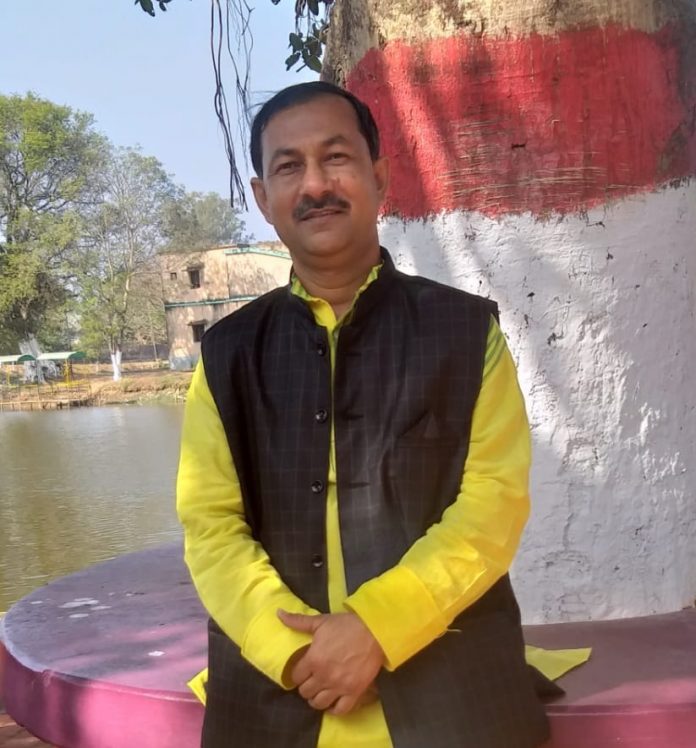Mahatma Gandhi, Father of The Nation, was not only the leader of Indian Independence movement against the British rule, but also established peace and non-violence through Satyagraha and Non-violent Non-Cooperation Movement. He was a great political leader, social worker, lawyer, educationist, writer and humanist. Early Life – One hundred and fifty years ago Gandhi was born on 2nd October ,1869 at Porbandar in Gujrat. His father was Karamchand Uttamchand Gandhi and mother was Putlibai. In his boyhood he watched the drama „Harish Chandra‟.
After returning from South Africa in 1915 Gandhiji first undertook a journey across the country for the firsthand knowledge of the country and its people. In 1917 he took up the cause of indigo cultivators at Champaran in Bihar. After Success at Champaran he conducted a workers‟ strike at Ahmedabad in 1918 . It was a movement against the adamant attitude of the Mill-Owners. Third centre of his movement was at Kheda in Gujrat where the British rulers imposed high tax on the cultivators and tortured them rudely . Gandhiji took the side of the cultivators and led his nonviolent Satyagrah. At last he became successful and the government was bound to solve the problems of the peasants. The involvement of Gandhiji in the affairs of Champaran ,Ahemedabad, and Kheda may be considered as prepatory stage to his participation in the national politics of India. It was Gandhiji who first realized that unless and until all classes of Indian population could be mobilized in the national movement no real freedom could be achieved. His programms had two distinct aspects. One was Non-cooperation with the British in a non-violent way and the other constructing or positive aspects of the non-cooperation included establishment of national school , promotion of swadeshi and hand-spinning. Gandhiji formally lunched the non-co-operation movement by renouncing the honorific title Kaiser-i-Hind‟ conferred upon him by the British Government.
At the call of Mahatma Gandhi people of different classes workers, farmers throughout India joined the Non-Cooperation Movement , The women folk were also not lagging behind. Basanti Debi, wife of ChittranjanDas ,Sarojini Naidu and others actively participated in it. Alarmed at the intensity of the Non-Cooperation Movement British Government took repressive measures to suppress the peaceful Satyagrahi Volunteers. Despite Gandhiji‟s appeal to the Satyagrahis to remain peaceful, a violent accident took place at Chauri-chaura near Gorakhapur in U.P. ,where an infuriated mob set the police station on fire and as a result 22 constables were burnt to death on 4th feb in 1922. After realizing that the movement was drifting towards violence ,Gandhiji immediately declared withdrawal of Non-Cooperation movement. Though the non-cooperation movement failed to achieve its immediate goal of establishing Swaraj in India , it had immense impact on India and its people . It was the first mass movement that touched the people even of the remotest villages and people realized that it was through this organisation that the goal of Swaraj could be achieved in the long run
Then Gandhiji decided to take part in the Second Round Table Conference held in 1931 in London. But after returning from London Gandhiji came to know that government was still adopting repressive measures. Moreover, British Government with a view to encouraging division among the Indians declared the ill-famous Communal Award in 1932 . It provided for separate electorates for different Indian communities. What was worse was the Award sought to create division even among the Hindus by allowing the deprived classes separate electorate.
Gandhiji‟s fast unto death in jail brought about negotiation in the Poona Act (1932). According to the agreement the deprived classes rejected the offer of the separate electorate made in the Communal Award. Giving his consent to the Poona Pact Gandhiji withdrew the fast. Though this movement failed to achieve freedom of the country , this movement was more intensive in magnitude than that of the non-cooperation movement.
Teachings of Gandhiji : – Gandhiji himself said , “ It is my life which is full of teachings.” Really if we study his life history we shall get many teachings from it. He lived modestly in a self-sufficient residential community and wore traditional dhuti and swal, woven with yarn hand spun on a charka. He ate simple vegetarian food and undertook long fast as a means of both self-purification and political protest. He undertook several fasts to death to stop religious violence. There is perhaps no name in history that embodies the teaching of non-violent, civil resistance better than Mahatma Gandhi. Though Gandhiji was meek and fragile in stature, his presence stood for respect and love for mankind, this humble peace loving man led an entire nation to independence.
He was also known for his love of teaching and educating people on peace, harmony, love and respect. The concept of changing ourselves to respect what you want to see around you is simple in theory but requires hard work, patience, and determination to attain. Gandhi not only taught this important principle in his words, but epitomized them in action . Even when facing imprisonment, hunger and possible death, Gandhiji remained steadfast, loving and peaceful.
He was a hero and the leader of a nation . He led his people to independence and self –rule. Through his extraordinary strength. He showed that self-sacrifice and courage-not death and destruction can produce change. We have learnt from his life that we have the capacity to change the world through peace, activism, demonstrating love and living unselfishly. He was a man of incredible self-discipline and strength of will. Let us follow his ideals , activities, non-violent attitude, peaceful co-existence and humanity. I pay my homage to this great man on his one hundred fifty years‟ birth ceremony.




